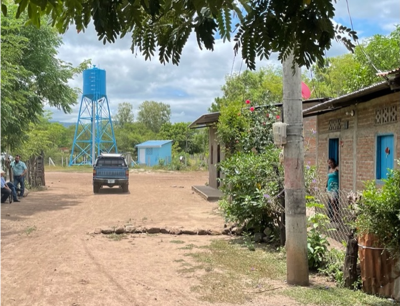
Last week, I had the opportunity to join Quixote Center on a delegation with PeaceWorks to Nicaragua. We visited a wide range of organizations across the departments of Managua, Masaya, León, Estelí, and Madriz.
Driving across the Nicaraguan countryside, I was struck by the beauty of the lush mountains and volcanoes. But I was also struck by the lack of people in their 20s and 30s that we encountered; many have likely left for Managua or abroad.
In 2022 alone, an estimated 328,443 Nicaraguans left the country. This may seem like a small number compared to the Venezuelan migrant crisis, but it represents nearly 5% of Nicaragua’s population of 6.6 million inhabitants. This trend has only continued into 2023.
There are many factors for this exodus, which are too complex for this reflection. But a primary driver is undoubtedly the economic downturn following the pandemic. Amongst the rising cost of living and inflation, many Nicaraguans are not making enough to sustain themselves. A similar story ultimately pushed my family to emigrate to the U.S. in the 70s and 80s.
In the absence of economic opportunities, development work is more crucial than ever. This trip was heartbreaking for me in many ways, to see the conditions that so many of my people are living in and the hopelessness they feel for the future. Basic needs such as drinking water and clean air were simply not a reality for many of the communities that we visited.
But I was also greatly inspired by the innovation and determination of each person we met, from a tour guide who had organized his community to rescue and guard sea turtle eggs, to a group of feminists in Masaya working to empower survivors of domestic abuse.
Though each project that we visited varied widely in mission, from educating impoverished street children to installing clean water, each one had the same thing in common: everyday Nicaraguans noticed an issue in their community, and mobilized amongst themselves to address it. These organizations were highly independent and self-driven in their projects.
For example, we visited a coffee cooperative so remote that the only way to visit the community was on a cart pulled by a tractor. In the absence of government presence, the cooperative organized amongst themselves to provide necessary services such as trash collection and water tank management. Their system: a paper sign-up sheet that the whole community could see, effectively shaming families that hadn’t yet participated into action. Quixote Center now hopes to collaborate with PeaceWorks to negotiate a better market price for their organic coffee.
This kind of grassroots model is what originally drew me to work for the Quixote Center, as historically so much of aid to Nicaragua has been the opposite, with foreigners telling Nicaraguans what they think they need to alleviate themselves from poverty.
We also met with The Federation for the Development of Rural People (FEDICAMP), which works to fight deforestation, improve agricultural practices, and expand access to clean water. Among their other initiatives, FEDICAMP has conducted a number of successful latrine and potable water projects by thoroughly engaging local government and communities in their planning, installation, and maintenance.
Despite the challenges of operating as a nonprofit in the country, Quixote Center is more determined than ever to continue its historic partnership with the people of Nicaragua. It is too early to say what the path forward holds, but we are optimistic of the possibilities. Stay tuned for further news.


Comments
Marie Lucey (not verified)
I am glad you were able to go. Could you fly directly into Managua? My friend who sponsors a nonprofit cannot. I appreciate this bad news good news report.
.
Katherine Hoyt (not verified)
The current Sandinista government is working hard to bring schools, health clinics, potable water and sanitation to even the most isolated communities in Nicaragua and has achieved incredible results. It is great to see non-profits like the Quixote Center working for those same goals!
Paul Beach (not verified)
It is very good to hear that the Quixote Center is optimistic about the possibilities of continuing its valuable historic relationship with the people of Nicaragua. Those of us who were inspired by the triumphs of earlier years in overcoming both the Somoza dictatorship and the criminal U.S.response really need to continue to look for ways to honor and maintain our commitment to support the people of the country now that the times make figuring out how best to do this more difficult.
Two things should be clear:
The U.S. response bears the major responsibility for the negativities that confront people in the country today and
Those of us who were inspired by the early efforts to rebuild the country and who built relationships with those in the country have a responsibility to try to figure out how to honor those bonds even in less optimistic times.
Thank you Quixote Center for your faithfulness.